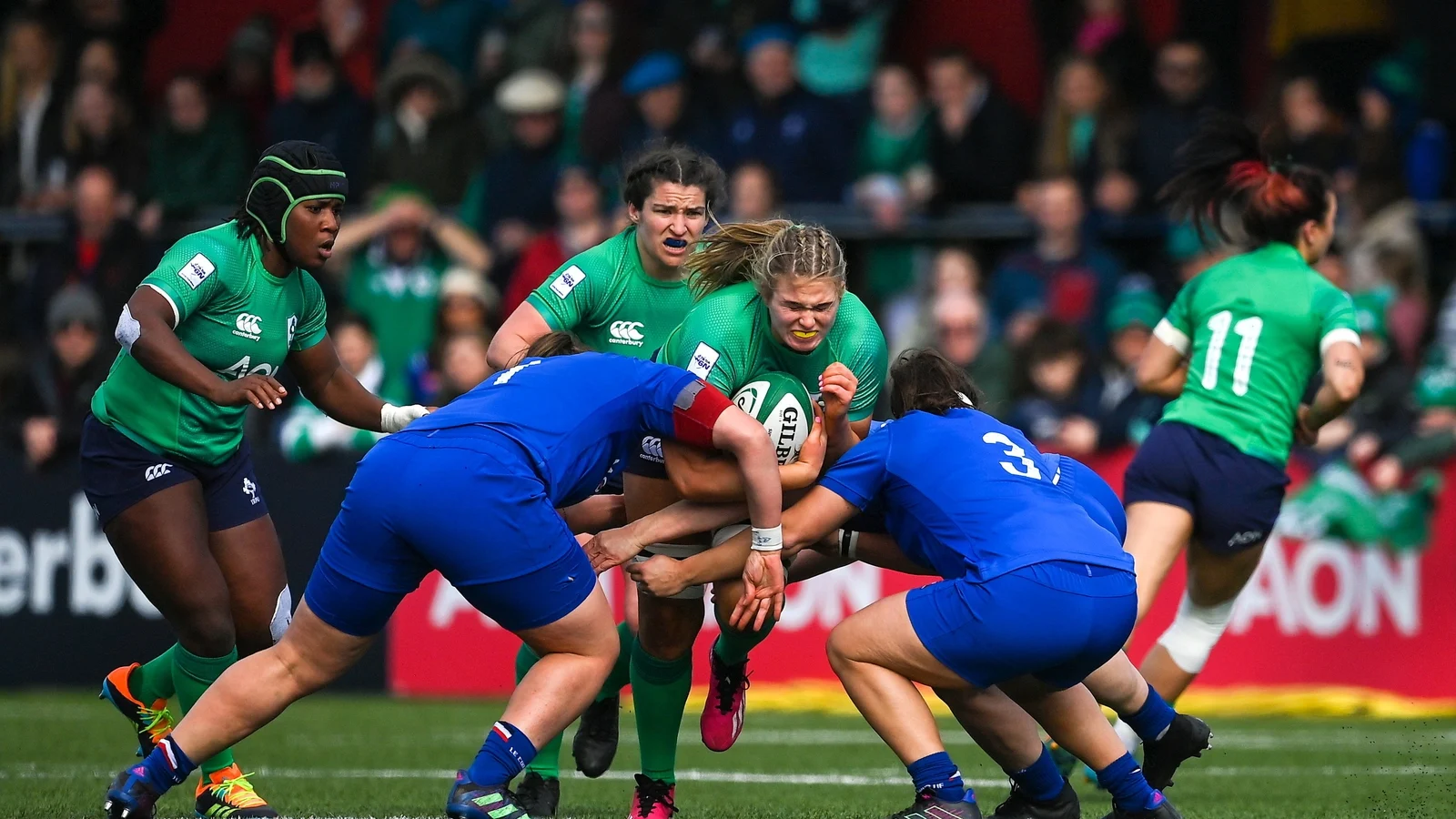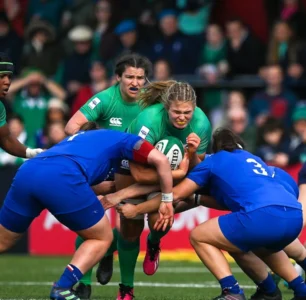Rugby terminology encompasses a unique lexicon used to describe various aspects of the game. Understanding rugby terminology is essential for fully engaging with the sport.
Unlock the language of women’s rugby with our comprehensive guide to rugby terminology, essential for players, coaches, and enthusiasts.
Rugby Terminology FAQ
- Rugby Terminology
- What does 'Grand Slam' mean?
In rugby, a Grand Slam refers to a team winning all of its matches in a specific tournament, usually the Six Nations or Rugby Championship.
- What does a Referee's whistle mean?
The referee’s whistle is used to signal various actions during a rugby match, such as stoppages, infringements, or the end of a period.
- What does 'Rugby pitch' mean?
A rugby pitch is the playing field where rugby matches are conducted, typically featuring grass or artificial turf and defined boundaries.
- What does 'Rugby union' mean?
- What does '22 drop out' mean?
A 22 drop out occurs when the defending team kicks the ball from their own 22-meter line after it was last touched by the attacking team but didn’t result in a try.
- What does '22-meter line' mean?
- What does '50-22' mean?
- What does 'Advantage' mean?
- What does 'Advantage line' mean?
- What does 'Conversion' mean?
A conversion is an attempt to kick the ball over the crossbar and between the goal posts after a try has been scored, earning additional points for the scoring team.
- What does 'Drop goal' mean?
- What does 'Forward pass' mean?
- What does 'Headgear' mean?
- What does 'Held-up' mean?
In rugby, ‘held-up’ refers to a situation where a player carrying the ball is prevented from scoring a try by the defending team’s efforts and the ball does not touch the ground.
- What does High tackle mean?
- What does In-goal area mean?
- What does In-goal touch mean?
In-goal touch refers to when the ball or a player carrying the ball goes into touch (out of bounds) within the in-goal area. When this happens, a restart occurs with either a 22-meter drop-out or a scrum, depending on who last touched the ball.
- What does Knock-on mean?
- What does Knock-on advantage mean?
- What does Loose ball mean?
A loose ball in rugby is a ball that is not in the possession of any player and is free to be picked up or played by either team. It often occurs from dropped passes, knock-ons, or turnovers in possession.
- What does Mouthguard mean?
- What does Offside mean?
- What does Penalty mean?
- What does Red card mean?
A red card in rugby is a severe disciplinary action taken by the referee against a player for serious foul play or repeated infringements. It results in the player being sent off the field for the remainder of the match, and their team must play with one fewer player.
- What does Referee mean?
- What does Rugby boots mean?
Rugby boots are specialized footwear designed for playing rugby. They typically have studs or cleats on the sole to provide traction and grip on the grassy or muddy surface of a rugby field. Rugby boots offer stability, support, and protection to players during matches and training.
- What does Scrum cap mean?
- What does Set piece mean?
- What does Sin bin mean?
The sin bin in rugby is a temporary suspension from the game for a player who has committed a serious foul or multiple infractions. Players typically spend 10 minutes off the field, during which their team plays with one fewer player. Sin bins are indicated by a yellow card from the referee.
- What does Substitution mean?
Substitution in rugby is the replacement of one player with another during a match. Teams can make substitutions for tactical reasons, to replace injured players, or to provide fresh legs and energy as the game progresses. Substitutions must follow the rules and be approved by the match officials.
- What does Tap penalty mean?
- What does TMO (Television Match Official) mean?
The Television Match Official (TMO) is an off-field match official who assists the on-field referee with making decisions using video replays. The TMO reviews incidents such as potential tries, foul play, and other key moments to ensure fair and accurate decisions are made during the match.
- What does Touch judge mean?
- What does Touchline mean?
- What does Try mean?
In rugby, a try is a method of scoring points by grounding the ball in the opponent’s in-goal area. It’s worth five points and is the primary method of scoring in the game. After scoring a try, the team is awarded the opportunity to attempt a conversion kick for additional points.
- What does Tryline mean?
- What does "What's a sin bin in rugby?" mean?
The sin bin is a temporary suspension area for players who commit serious or repeated infractions during a rugby match. When a player is sent to the sin bin, their team plays with one fewer player for a specified amount of time, typically 10 minutes, allowing the opposing team a potential advantage.
- What does "What's a try in rugby?" mean?
A try in rugby occurs when a player grounds the ball with downward pressure in the opponent’s in-goal area. It’s the primary method of scoring and is worth five points. After scoring a try, the team is given the opportunity to attempt a conversion kick for additional points.
- What does Yellow card mean?
In rugby, a yellow card is a disciplinary action issued by the referee to a player for committing a serious or repeated infraction. The player must leave the field for a specified period, typically 10 minutes, during which their team plays with one fewer player, giving the opposing team a potential advantage.
- What are the key skills needed to play rugby effectively?
Key skills for effective rugby play include agility, strength, speed, endurance, decision-making, communication, and teamwork. Developing these skills through practice, coaching, and game experience is crucial for players to perform well and contribute to their team’s success.
- What is a Captain's challenge?
A Captain’s challenge is a mechanism where the team captain can request a review of a referee’s decision during a match, usually limited to certain situations.
- What is a Conversion kicker?
A conversion kicker is a player responsible for attempting to kick the ball through the goal posts after a try has been scored, earning additional points.
- What does 'dummy' in rugby mean?
In rugby, ‘dummy’ refers to a deceptive move made by a player to mislead the opposition, often involving a fake pass or run.
- What does 'Fifteens' mean?
- What does a Goal kicker mean?

